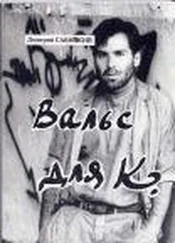In Paris we lived modestly, with a sort of melancholy gaiety. Something had infused the atmosphere of our relations for good: a certain quantity of what I thought was non-lethal poison. I tried not to hear news from Russia, bought no newspapers, but whether I liked it or not the magazines that used my work slipped in commentaries on Soviet life, and I was often overcome with disgust, as in Nikakov’s office—overtly or covertly, they were 99 per cent pro-Soviet.
Money started to come in. Katenka rented a narrow storefront in one of the back streets off Les Halles. She fixed up almost everything herself, herself went around buying stuff, and soon she opened a tiny boutique, “Chez Katy,” where everything, literally everything was the same dark-cherry color. I mean blouses, sugar, pants, tennis racquets, bottles of liqueur, boots, candles, glasses, even cakes and pastries. For a month the shop yawned empty, then buyers began arriving in droves—my Katenka became very fashionable, and you saw girls in the street dressed all in Katenka’s one color. I was gladdened by her success but, to be honest, frightened by the color.
One evening at a noisy party given by a famous art critic—every last painter was there to pay his commercial respects—Katenka and I were standing on a balcony. She was wearing a light dress and her bare hands were cupped, I’m afraid to say prayerfully, around a glass of champagne. Suddenly she started talking about Nikolai Petrovich, about his one-room library, while I looked down at the early-evening bustle of Montparnasse far below. What she was saying filled me with something heavy, and I was on the point of stopping her when I heard: “He gave it to us as a gift, and it became our salvation, and we never even try it any longer... not even a tiny bit....” Already bending, or rather pouring, over the rail of the balcony, she was slipping down. The rest happened in an instant: I saw her turn in a spiral, then plummet down, a colored ball with her gown streaming out behind; I heard the motley crowd gasp as it instantly formed itself into a perfect circle.... Why did I rush to the stairs, to get the elevator? To this day, I don’t know....
She was buried at Saint‑Genevieve-des‑Bois. There, where so many endlessly strange Russian fates have ended. There, too, visiting her grave, I once met a former Soviet engineer, now a voluntary Paris clochard. And the nicest possible life-loving clochard he was. I gave him a lift back into Paris, and when we were already sitting in a cafe, just about to part, he suddenly said to me: “They say those who could fly, once they get to the West they simply lose the ability.”
He was a merry soul, and his smile, hanging in the dimly-lit cafe, reminded me of the Cheshire cat—one of ours.
Koktebel: Traditional gathering place, on the Eastern shore of the Crimea, for Russian literati interested in occultism and the ideas of Rudolf Steiner. To some extent the tradition is still alive today. —Translator’s note
In the Soviet Union people are required to eat fish on Thursdays. —Translator’s note

